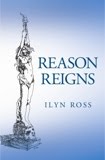St. Thomas Aquinas and the Founders are the proof that reason and faith can coexist, parallel to each other, in the same man. Like them, their moral descendants revere reason, freedom, and happiness.
Thomas Aquinas, the man who ended the Middle Ages and ushered in the Renaissance, said reason does not rest on faith but is a self-contained, natural faculty which works on sense experience. Echoing Aristotle, he said that the essential task of reason is to gain knowledge of this world. Thomas Aquinas declared that men must use and obey reason because whatever one can prove by reason and logic is true. He held that faith is valuable as a supplement to reason.
Thomas Jefferson, the author of the Declaration of Independence, enjoined, “Fix reason firmly in her seat, and call to her tribunal every fact, every opinion. Question with boldness even the existence of a God; because, if there be one, he must more approve of the homage of reason, than that of blindfolded fear.”
The standard of good is exalted in the Declaration of Independence: man’s life! A Declaration worshipper, Ayn Rand held that man’s life is the standard of value – and his own life is the ethical purpose of every individual man.
Ayn Rand created Objectivism which advocates capitalism as the consequence and the ultimate practical application of its fundamental philosophical principles.
Objectivity is both a metaphysical and an epistemological concept pertaining to the relationship of consciousness to existence. Metaphysically, it is the recognition of the fact that reality exists independent of any perceiver’s consciousness. Epistemologically, it is the recognition of the fact that a man’s consciousness must acquire knowledge of reality by means of reason in accordance with logic.
Objectivity holds that in matters pertaining to human knowledge, metaphysically - reality is the only authority; epistemologically – one’s own intellect. “Reality is the ultimate arbiter of the mind”, says Objectivism. In all aspects of human existence, man achieves his values only by making his decisions consonant with the facts of reality.
Ayn Rand was an atheist. She greatly admired Thomas Aquinas, Thomas Jefferson, and the other Founders, noble advocates of reason who believed in God. What do I call one who reveres Thomas Aquinas, Thomas Jefferson, and Ayn Rand? An Objectivist-Thomist.
An Objectivist-Thomist fights theocracy warriors and the concept of a cruel, unjust, sadistic god.
Thomists, Jeffersonians, individualists, and other freedom fighters: this is the creator of Objectivism in essentials:
“My philosophy, in essence, is the concept of man as a heroic being, with his own happiness as the moral purpose of his life, with productive achievement as his noblest activity, and reason as his only absolute.” -- Ayn Rand
“The only good which men can do to one another and the only statement of their proper relationship is — Hands off!” -- Howard Roark, The Fountainhead by Ayn Rand
"I swear, by my life and my love of it that I will never live for the sake of another man, nor ask another man to live for mine." -- John Galt, Atlas Shrugged by Ayn Rand
"If it is ever proper for men to kneel, we should kneel when we read the Declaration of Independence… the greatest document in human history, both philosophically and literarily." -- Ayn Rand
Ayn Rand was hostile to theocracy warriors but never to private faith.
From Ayn Rand Answers, pages 62-63:
"We should keep religion out of politics for the same reasons the Founding Fathers gave. Religion is a private matter... With the American separation of church and state, all religions could live together peacefully, because each man is free to hold his own beliefs but cannot force them on others.
Persuasion, reason, argument are not the province of religion. Religion rests on faith - on an acceptance of certain beliefs apart from reason. THIS IS WHY IT MUST BE PRIVATE. WHEN IT'S A PRIVATE MATTER, IT'S FINE - IT CAN EVEN BE A KIND OF INSPIRATION TO PEOPLE. Faith is what each man may choose for himself, if he wishes. I don't."
From page 63:
"In America, religion is relatively nonmystical. Religious teachers here are predominantly good, healthy materialists. They follow common sense....
THERE ARE RATIONAL RELIGIOUS PEOPLE. In fact, I was pleased and astonished to discover that some religious people support Objectivism. If you want to be a full Objectivist, you cannot reconcile that with religion; BUT THAT DOESN'T MEAN RELIGIOUS PEOPLE CANNOT BE INDIVIDUALISTS AND FIGHT FOR FREEDOM. THEY CAN, AND THIS COUNTRY IS THE BEST PROOF OF IT....
In America, you would not find it difficult to divorce religion from altruism. After all, Christ said - "Love your neighbor as yourself." So you must love yourself. After that, you can argue about your neighbors."
One’s soul is one’s private domain. Where one’s private domain is concerned, the Declaration of Independence and Objectivism both declare: Hands off!
Reason and faith can coexist, parallel to each other, in the privacy of one’s soul.

